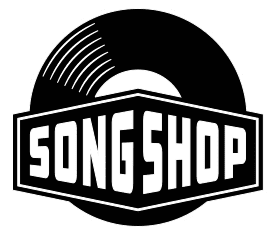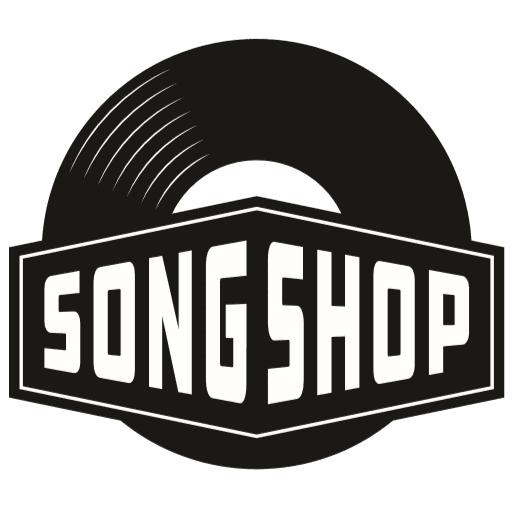THE BACK STORY
I started my band with me and five others back in 2012. There was a drummer, bassist, guitarist, utility player, me on guitars/keys, and the lead vocalist. The first thing we did (literally before our first paid show) was purchase a sound system large enough to fill a community skating rink – we live in Canada – that’s a unit of measurement here. Me and one other guy fronted the money, and the band would pay us back, sort of like a loan payment after each show. This basically bound all six of us together in a verbal agreement and sort of kick-started us into getting set up as a legitimate business. One of the guys worked at a bank, he could open us a business account, but we needed a legal business name. So we registered our band name, signed some documents, and became a legitimate business.
One of the first things we did was register as a partnership and get a lawyer to draft us up a band partnership agreement. This is something that outlined how finances would be handled, who owned what, what was expected of everyone, royalty splits -EVERYTHING. The partnership agreement came in handy down the line. Right before we started to pursue music on a commercial level there was a falling out with two of the members. Although it was emotionally intense and a difficult situation – the actual logistics were seamless because we had all signed a legal document outlining what was to happen if this situation arose.
TO BUSINESS – OR NOT TO BUSINESS?
Lots of people wonder if/when you should register your band as a business. There isn’t really a clean cut answer to this as lots of factors come into play. If you are going to go as far to sign a partnership agreement, you might as well go ahead and register as a business. If there is a lot of money or assets at stake, or if there is constant arguments or drama over profit splits and who owns what – it might be a good thing to consider. Being registered as a business also has a few perks:
- You are able to purchase insurance for gear, liability, etc.
- You can write off business expenses
- You can charge tax to customers/venue’s (I’ll explain why later)
- You can open a business bank account under the name of your band and get business loans (you can finally buy a tour bus!!)
- It gives everyone equal ownership OR makes it clear who is running the show and who own what
- Roles and responsibilities will be clearly defined
- You can be more attractive to record labels (the more professional you already are – the less time and effort they have to invest in you).
Whether you are just getting started, or have been making music for years; if you are serious about making an income from your music you need to start treating yourself like a business NOW.
WHAT KIND OF BUSINESS AM I?
To start, if you have a large amount of cash flow (30k per year or more) you should be registered as a legal business. If you’re making that kind of money – the government is going to want it’s cut. By being registered as a business you can charge tax to customers so you don’t have to pay it out of your own pocket! This can be a partnership, incorporation, sole proprietorship, or whatever makes the most sense for your situation. If you are just a solo artist doing everything by yourself, a sole proprietorship might work best to start. For a band, a partnership might be the best option. If you need legal protection and want your business to be a stand alone entity outside of your personal life an incorporation would be the best option for you!
LOGISTICS
Once you decide what sort of business you are going to be registered as, the next thing you should do is delegate roles – this will be necessary if you are going into partnership and have more than one person on the business registration.
If you aren’t into registering as a legal entity yet that’s fine! You should still set some roles to make sure everything is run consistently. This can look however you want it to, but here is an outline of what sort of roles people should take;
- Booking Agent
- By having the same person booking your shows for you, the process will always be consistent, and the amount of money you make per show (depending on the type of show) should be pretty consistent too. This isn’t saying other members can’t go and book shows for you – they would just hand the conversation over to the “booking agent” and let them take it from there.
- Finance Manager/Accountant
- Delegate someone who is going to handle the money. By having the same person deal with income, paying hired team members, and tracking expenses there will be a lot less confusion on where that $75 went back in May.
- Production/Stage Manager
- This person should take care of making sure all the equipment and gear is available and accounted for. Whether you’re bringing your own equipment, or production is provided at the venue this member will make sure everyone’s needs are met BEFORE you hit the stage for sound check. There’s nothing worse than showing up only to find out that what you needed isn’t there. Your Booking Agent might work closely with this person to get them in contact with the venue to figure out what’s needed. Tip: Creating a Stage Plot for a few different show scenarios can save a ton of back and forth conversation with venue’s and production teams here!
- Marketer/Social Management
- Transportation/Storage
- Executive/CEO/Boss Man/Manager
- This last position isn’t always necessary, and everyone can usually work together to get things accomplished. This person basically oversees all the business operations and makes sure everyone is in the know. If you are a solo artist, this would likely be you!
MAKE THINGS SIMPLE
Once you have all of your roles defined, you can then put systems in place to make everything easy for you. Here are a few simple ways to keep things in order and consistent
- Build a template for the quoting process
- Build a stage plot for a few different show scenarios. Some examples:
- Full Production (All members, all instruments)
- Acoustic Show
- Stripped Down
- Create a system to track finances
- Build an Excel Spreadsheet
OR
-
- Link your bank account to some accounting software
- Set up some social media scheduling tools. It makes things way easier when it can all be done in once place!
- Get a “team” set up
- Have a few people you regularly work with. Graphic designers, photographers, studio’s, whatever the case may be. If you work with the same people regularly they will know your brand and what you are looking for. They might give you some deals as a repeat customer along the way too!
These are just a few quick and easy ways to make your life a bit easier. I am a HUGE fan of this stuff. Believe me – I have done things the hard way.
IS THIS ALL REALLY NECESSARY?
No. You don’t have to do any of this stuff – But if you want to try to make a career (or even a side hustle) out of your music, I would recommend you start taking things seriously today!
If you want to make business out of anything you need to treat it like a business and show up consistently. Every day!




One Response
Great read Steve. Lots of fantastic information for those starting out!